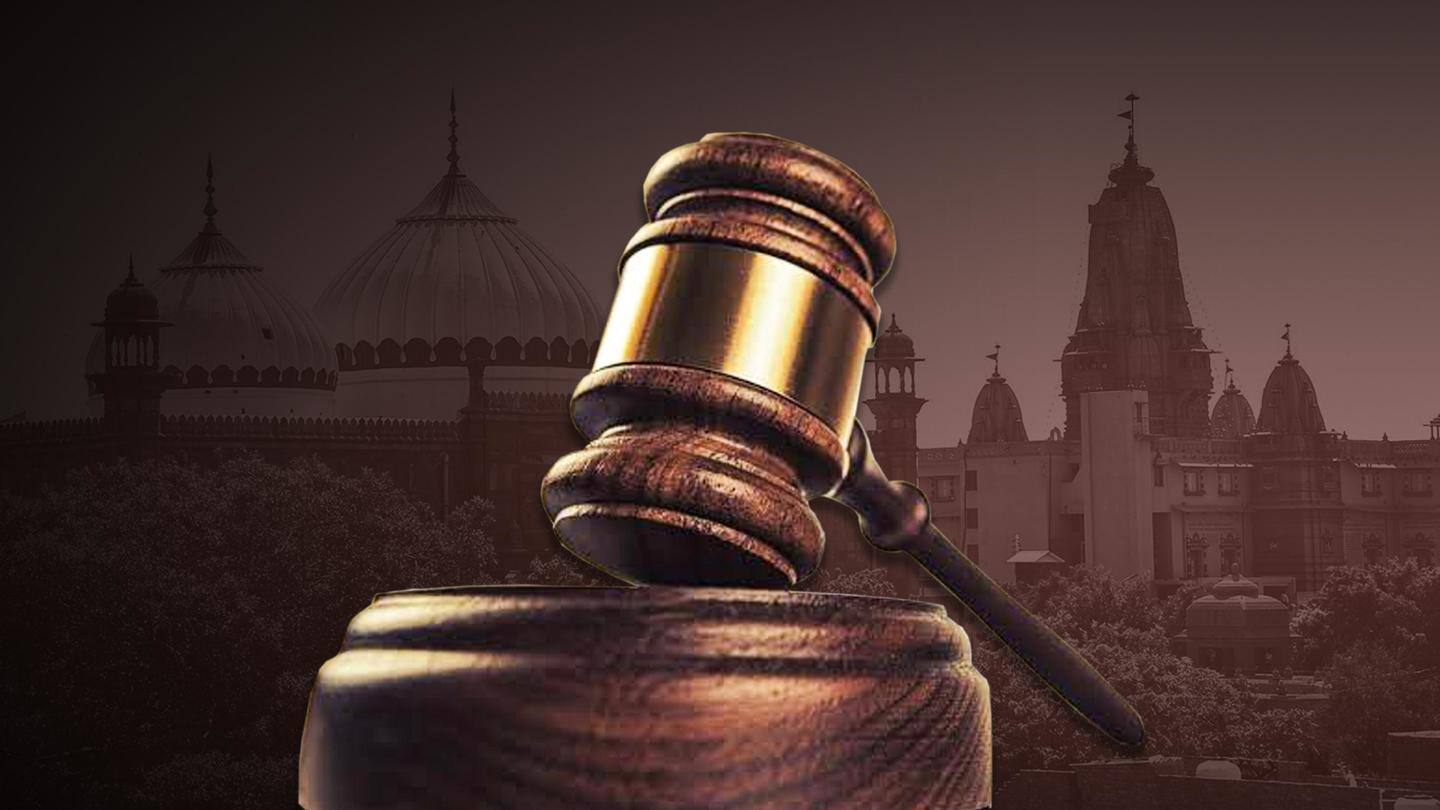
Mathura: Court allows petition seeking removal of Shahi Idgah Mosque
What's the story
Amid the ongoing Kashi Vishwanath-Gyanvapi Mosque row, an Uttar Pradesh court on Thursday allowed another petition seeking the removal of the Shahi Idgah Mosque near the Krishna Janmabhoomi in Mathura.
The lawyer for the Hindu side claimed that the mosque was built by Mughal emperor Aurangzeb in 1669-70 on the land belonging to the Keshav Dev Temple, the birthplace of Lord Krishna.
Context
Why does this story matter?
This comes at a time when the Supreme Court and a Varanasi court are already hearing the Varanasi Gyanvapi Mosque-Shringar Gauri case.
Both the cases are similar in nature where the Hindu petitioners claim that mosques were built on temple lands.
Notably, such cases have assumed significance following the Supreme Court's decision in the Babri Masjid-Ram Janmabhoomi case in 2019.
'Next friend'
'Mosque was wrongly built,' says petitioner's lawyer
The petition was filed by Lucknow-based Ranjana Agnihotri as "next friend of the infant Lord Krishna."
"As worshippers of Lord Krishna, we have the right to file a suit demanding restoration of his property," said the petitioner's lawyer.
In legal parlance, a "next friend" is a person who represents another person as the latter is unable to represent themselves in court.
De facto owner
What are the petitioners demanding?
Petitioners are seeking the ownership of 13.37 acres of land of Shri Krishna Janmabhoomi and the removal of Shahi Idgah Mosque built there.
One of the petitioners also requested the court to demolish the Idgah built on the trust's land declaring it as illegal and hand over the entire land to the de facto owner—Lord Shri Krishna Virajman of the Katra Keshav Dev Temple.
Excavation
Court allows plea to seal the Shahi Idgah Mosque
The petitioners also sought a court-monitored excavation of the disputed site and that an inquiry report of the excavation should be submitted.
The hearing in this case in Mathura's Sessions Court concluded on May 6.
Meanwhile, the Mathura court, which accepted the lawsuit, also allowed the plea to seal the Shahi Idgah Mosque near the Krishna Janmabhoomi.
Challenged
Lawsuit was earlier dismissed citing Places of Worship Act
The Mathura civil court had earlier dismissed the lawsuit citing the Places of Worship Act of 1991.
It had also said that if the lawsuit was registered then worshippers would approach the court with various cases.
The order was, however, challenged by the petitioners, who argued that as Lord Krishna devotees, they had a right to approach the court.
Do you know?
What is the Places of Worship Act, 1991?
The Places of Worship Act, 1991, lays down that the character of a religious place cannot be altered from what it was on August 15, 1947. The SC has consistently upheld the Act while granting an exception only in the Babri Masjid-Ram Janmabhoomi case.